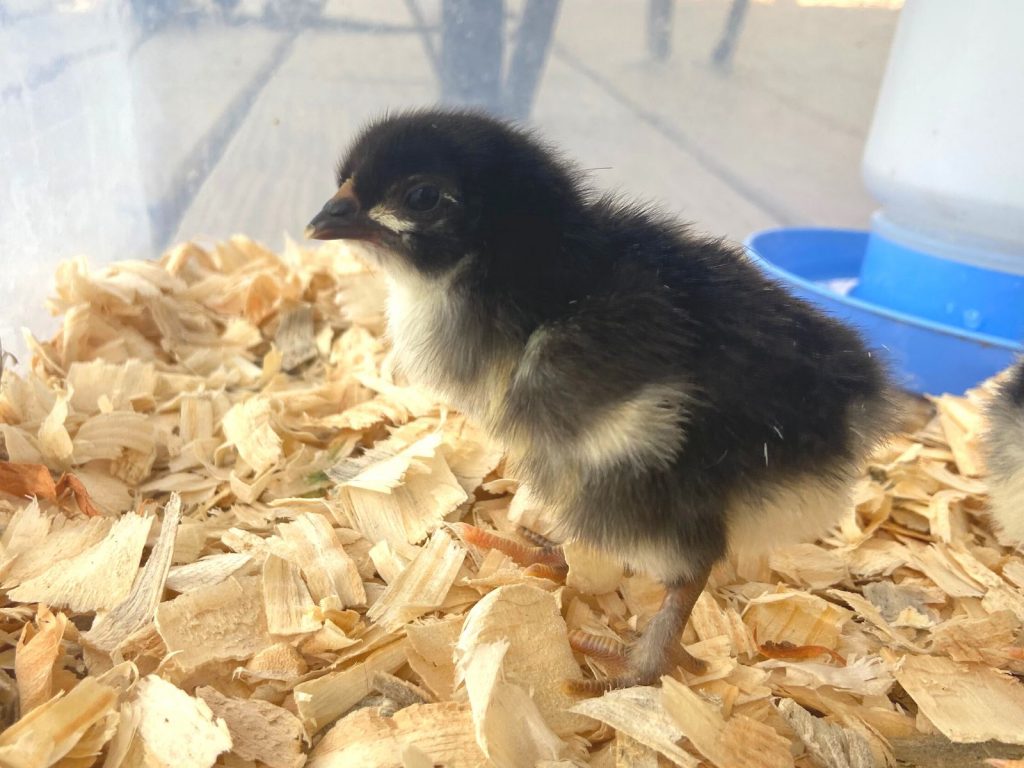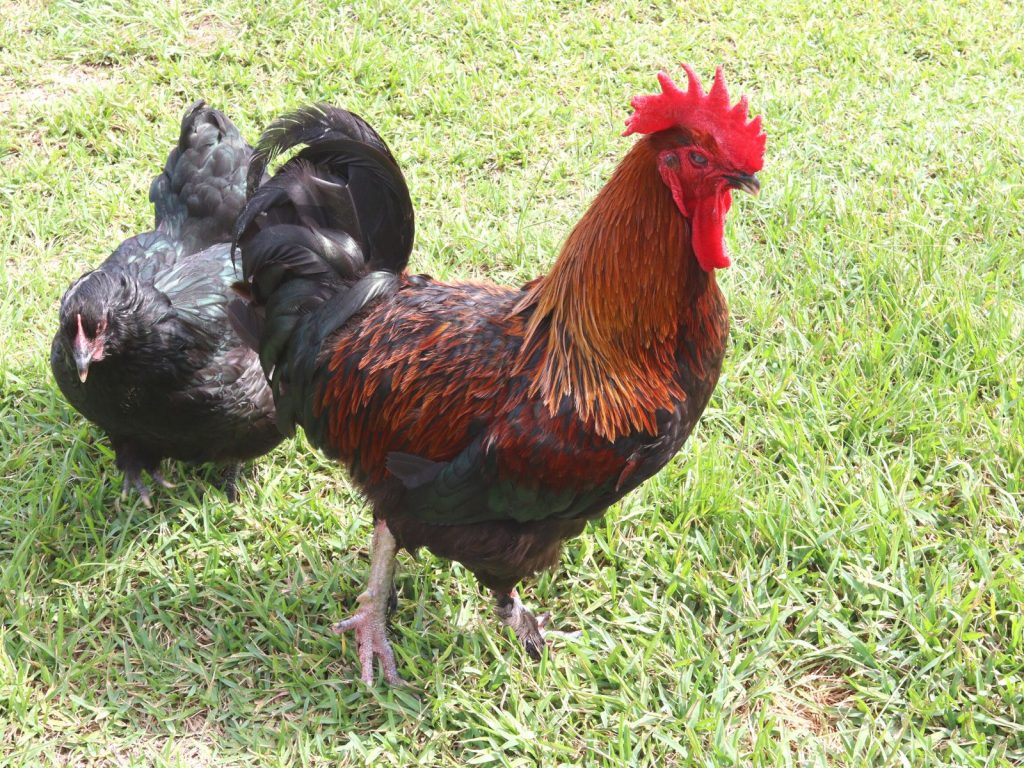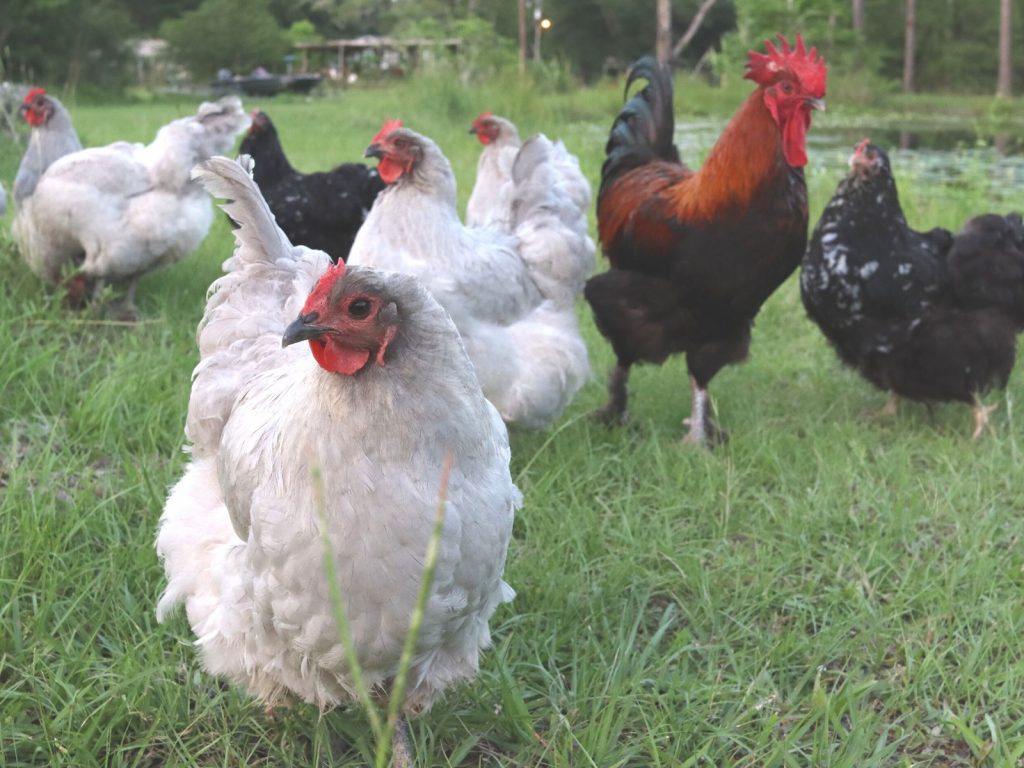What Are Baby Chickens Called? (New Chicken Owners Guide)

When you first enter the world of backyard chickens, you will start hearing terms that you have probably never heard. Or at least that was the case for me. I thought there were chicks, hens, and roosters – what in the world are all these other names being thrown around?
And while no one is going to come after you if you don’t use the “right name” it is still extremely helpful in understanding differences between age and sex of chickens.
So, if you’re needing a little clarification and direction on chicken terminology this post is for you!
All About Baby Chicks
Let’s talk about some of the main terms you may run into when selecting your cute and fluffy birds for your new flock!

What are baby chickens called?
The most common term for a baby chicken is chick. You may also hear them called peeps or hatchlings. These terms are gender neutral since you are usually unable to tell the gender of the baby chickens. As your little baby chickens age, you will be able to start calling them by a more specific name based on sex.
What are day-old chicks?
You will see this term when purchasing chickens from hatcheries. This means exactly what it sounds like – new chicks that are only a few days old.
What is a straight run when purchasing chicks?
This means you are buying unsexed chicks. You select the number of chicks you want, and you will end up with varying amounts of baby roosters and hens. There is no way to control how many of each sex you will end up with.
Once you are able to determine if your chicken is a male or a female (usually around 6-8 weeks of age), you can start referring to them using the follow age-appropriate terms.
Names for Female Chickens
Female chickens can fall in to two main categories – a pullet or a hen.
What are pullets?
An immature female chicken is referred to as a pullet. This term is used to describe young females who have not started egg production or are less than a year of age.
What makes a pullet a hen?
After 12 months of age, your lay chickens who have been referred to as pullets, are now called hens. At this point, they should be laying eggs regularly. You may also hear the terms broody hen, mother hen, or biddy.
A broody hen is a bird who wants to sit on a clutch of eggs with the purpose of hatching them. She will exhibit behaviors, like moodiness and not eating or drinking much, during this time.
A mother hen is a bird who is now feeding and protecting her chicks that she has recently hatched. In some cases, a hen will even mother chicks that she did not hatch. We’ve had instances where our broody hen has left the chicken coop after a week of hatching chicks and one of our other hens has taken over.
Occasionally, you will hear an older hen (usually once egg production starts to slow down) referred to as a biddy.
Are you setting up for a new set of backyard chickens? Be sure to check out this post on nesting boxes for your hens! How Big Does My Chicken Nesting Box Need to Be?

Names for Male Chickens
In backyard chicken keeping, male chickens are usually referred to as either a cockerel or a rooster.
Speaking of male chickens – have you been wondering if you need one? Here’s a helpful post on all the reasons you may (or may not) want to keep a rooster!
Cockerel vs. Rooster
A cockerel is a young male chicken under a year of age. After a year old, a male chicken is now referred to as a rooster.
I’ve seen some say that prior to a year of age, the cockerel is still considered an immature male chicken that has not reached sexual maturity. While that may be true that they are not fully matured, young males are still able to breed prior to a year of age and will exhibit many of the same behaviors as adult birds.
Our cockerels, from ages 5-6 months on, have provided us with fertilized hatching eggs from our hens. Around the 4-month-old mark, they start to show some of the same behaviors as roosters – crowing, protective, and even sometimes aggressive.
Of course, this can all vary depending on your breed of chicken, but in general, the one-year-old mark doesn’t mean much in terms of behavior for male chickens.
What is a group of chickens called?
A group of chickens is referred to as a flock. You flock can be made up of both young chickens and adult chickens.

What is a group of baby chickens called?
A brood or a peep of chicks. This is used to refer to groups of chickens that are freshly hatched and are still under the care of the mother chicken.
How to know if you have male or female chicks.

Certain breeds can be sexed as young chicks (within a few days of hatching) by counting the rows of wing feathers or by color variation. But it is important to remember that this only applies to specific breeds and has to be done very early on.
If you’ve already passed the early hatching days or your breed is not able to be feather sexed, you can look for the following visible signs:
Male baby chicks will start showing the same characteristics of adult males within a few months of age. You may notice a slightly larger comb and thicker legs. As their adult feathers come in, you may also notice the longer saddle feathers. A behavioral sign is that the baby roosters walk more upright than the hens.
There you have it! I hope this post is helpful and sheds light on the various terms you may hear in your new ventures of chicken raising.
Check out these other articles on raising backyard poultry!
Lavender Orpington Chicken Guide – What You Need to Know
